The 7 best vitamins for anxiety and stress
As anxiety rates rise to all-time highs, these are the vitamins for anxiety that can make a difference.
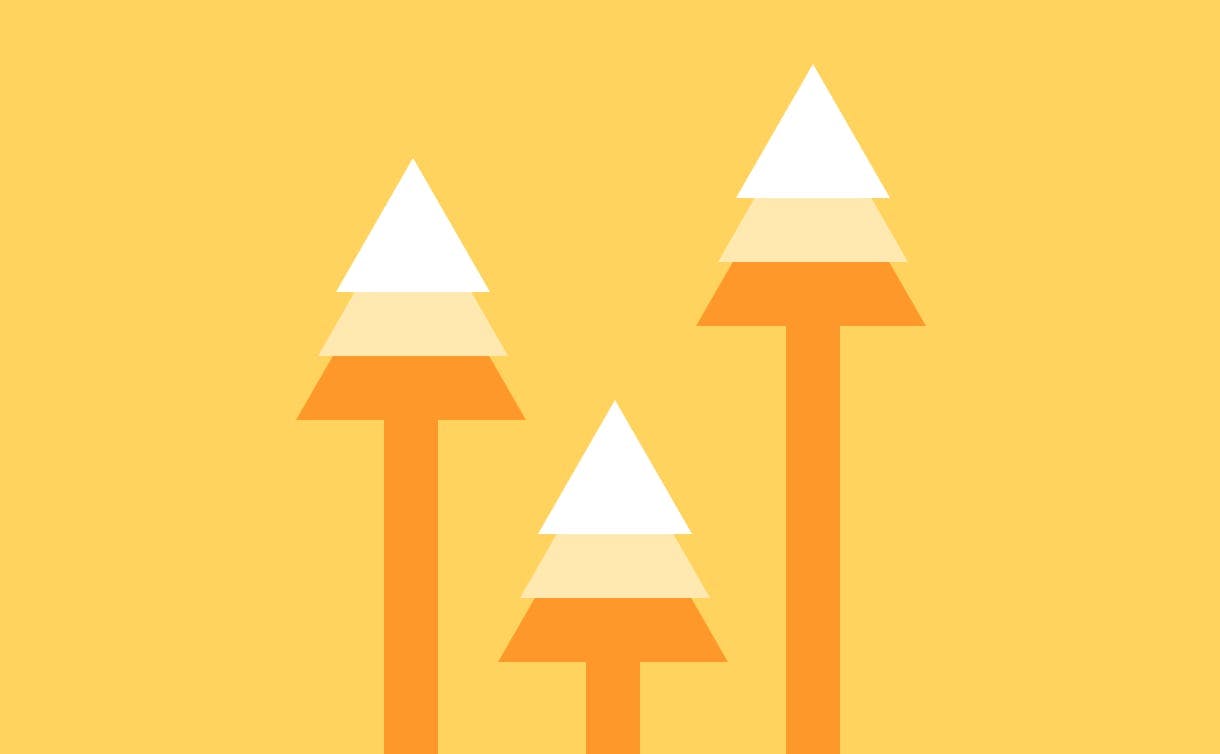

If you’re feeling anxious today, you’re not alone. Mental Health First Aid England[1] reports that anxiety and other mental health concerns are at an all-time high, and one of the main drivers[2] for this sharp increase has been our collective health and safety worries over the past few years.
In this article, we’ll look at the best vitamins for anxiety, and see whether a high-quality supplement can help with anxiety, stress, and panic attacks.
Can vitamins help with anxiety?
You’ve probably heard the standard advice for reducing stress and anxiety recommended by wellness experts ad nauseam—get more sleep, hit the gym, etc. But many people are missing one essential step: providing the antioxidants, minerals, and vitamins, minerals and antioxidants that can help with anxiety levels, and support a healthy mind and a balanced nervous system.
With a smart nutritional approach to braincare, you can face your day’s challenges and opportunities with less anxiety, less stress, and more confidence.
So if you’re feeling anxious or stressed, or want to take proactive steps today to prevent problems down the road, start with these natural vitamins for anxiety.
The best vitamins for anxiety, stress, and panic attacks
1. B vitamins
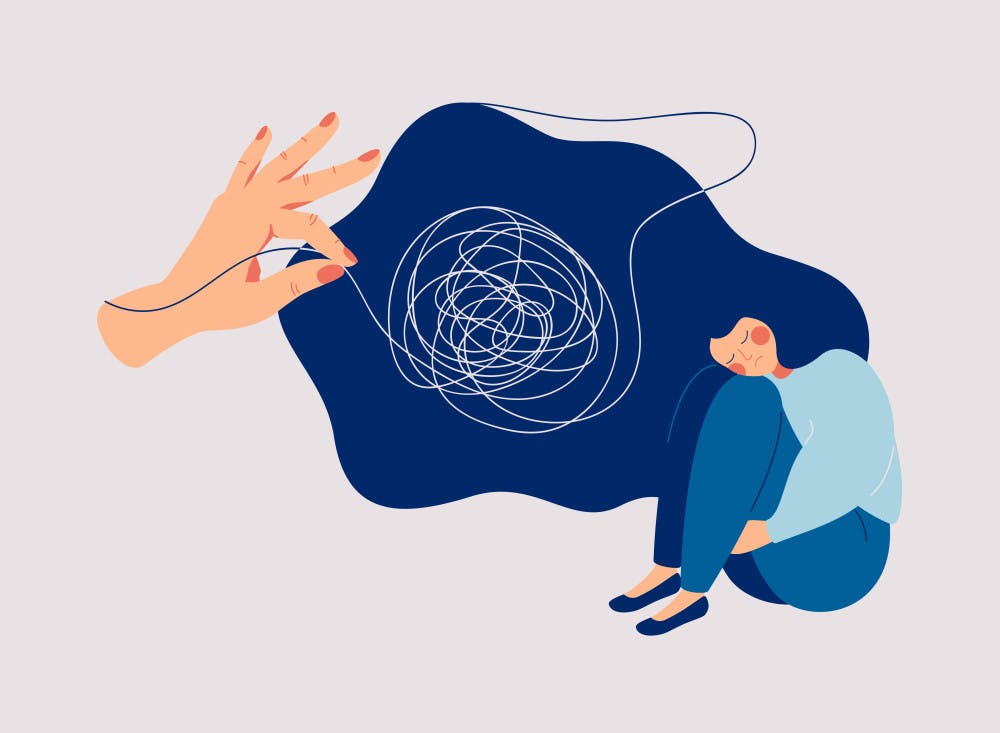
There are eight B vitamins, and they are all essential for your body to function:
Vitamin B1 (Thiamine)
Vitamin B2 (Riboflavin)
Vitamin B3 (Niacin)
Vitamin B5 (Pantothenic acid)
Vitamin B6 (Pyridoxine)
Vitamin B7 (Biotin)
Vitamin B9 (Folate)
Vitamin B12 (Cobalamins)
All B vitamins play a beneficial role in reducing anxiety and improving your mood. For instance, a study[5] published in the Journal of Functional Foods found that people who ate B vitamin-rich foods saw significant improvements in their anxiety and stress scores compared to those who didn't eat B vitamin-rich foods.
However, when it comes to natural vitamins for anxiety, vitamin B12 is especially powerful. For instance, there's a strong correlation[4] between low levels of B12 and increased rates of anxiety and depression. B12 also offers additional braincare benefits, such as increasing your ability to focus and helping you to feel energised.
Daily nutrient reference values (NRV) for vitamin B12
Adults: 2.4 μg/day
Pregnant individuals: 2.6 μg/day
Breastfeeding individuals: 2.8 μg/day
Top food sources for vitamin B12
Shellfish like clams, mussels and crab
Fish, especially Atlantic mackerel and salmon
Lean poultry, such as turkey or chicken
Plant-based eaters need to pay special attention to B12, as aside from nutritional yeast—it’s pretty tough to come by.
2. Vitamin C for anxiety
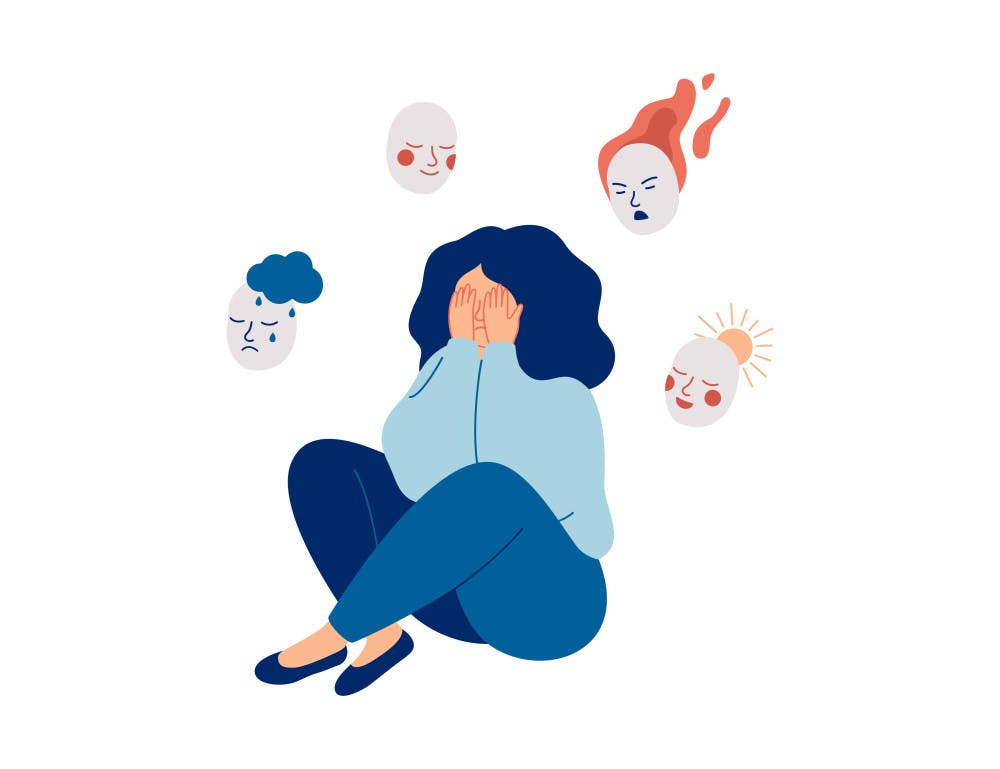
You might think of vitamin C as an immune booster, but it’s also excellent for your brain and one of the best vitamins for stress and anxiety.
This antioxidant plays a vital role in maintaining balance in your central nervous system. A study in the Journal of Nutritional Biochemistry[7] declared that "vitamin C deficiency is widely associated with stress-related diseases” and notes that taking a vitamin C supplement may improve your mood and reduce anxiety.
Plus, chronic anxiety leads to elevated levels of cortisol (a stress hormone linked with a higher risk of diabetes and many other diseases). Vitamin C can help your body to better manage its cortisol levels.
NRV for vitamin C
Adult males: 90 mg/day
Adult females: 75 mg/day
Top food sources for vitamin C
Citrus fruits
Colourful vegetables, such as red bell peppers
Tomatoes
3. Vitamin D for anxiety
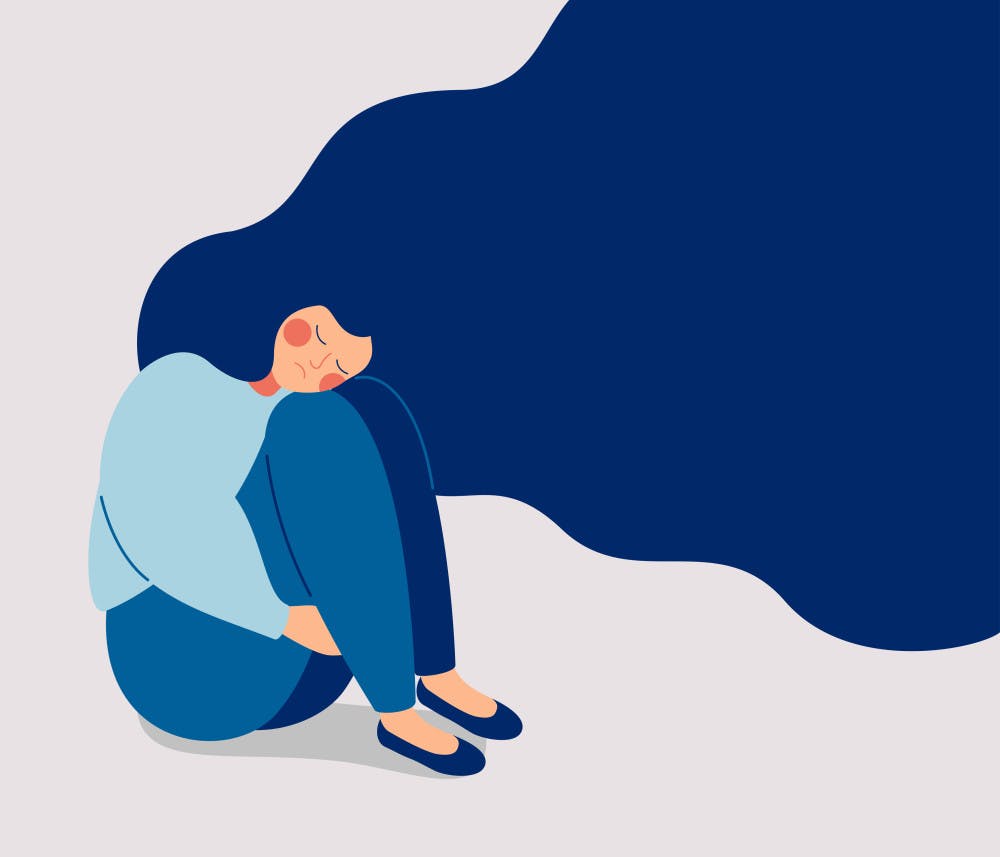
Approximately 40% of Europeans[8] don’t get enough vitamin D.
And while it’s unclear if a vitamin D deficiency causes anxiety and depression, there’s a correlation[9] between low vitamin D levels and higher rates of anxiety and other mood disorders. One study even found that taking a vitamin D supplement helped improve symptoms of depression[10].
Given that the NHS recommends all adults in the UK take a vitamin D supplement [11], it’s an important addition to your routine to help with anxiety and stress.
NRV for vitamin D
Adults: 600 IU/day
Adults over the age of 70: 800 IU/day
Top food sources for vitamin D
Fish, such as salmon or sardines
Egg yolks
Fortified foods, such as milk or cereal
4. Magnesium for anxiety
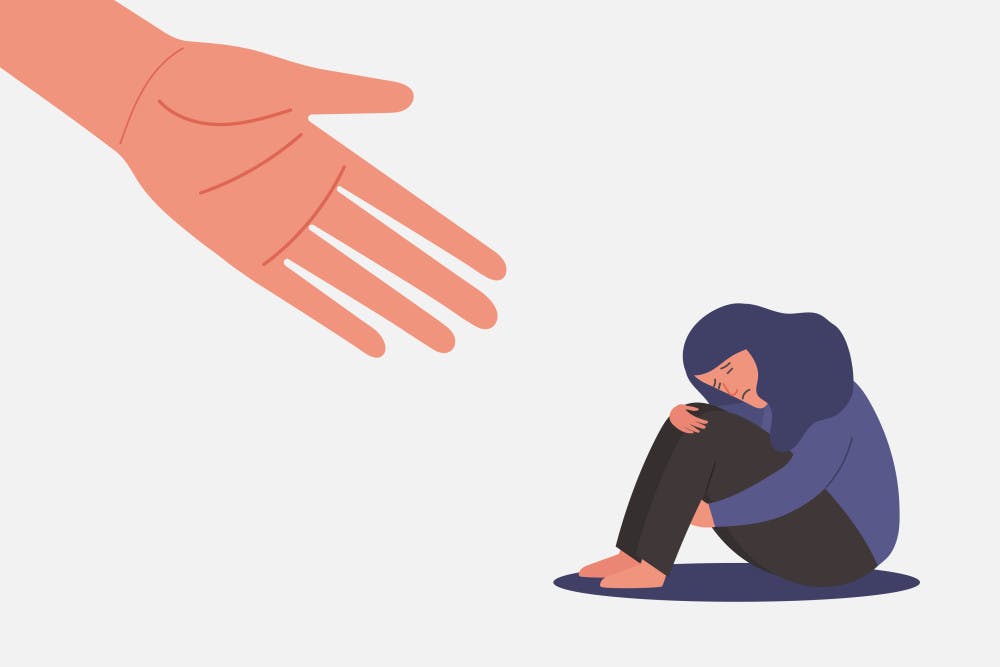
This anti-anxiety mineral is one of the more common supplements to help with anxiety and stress. A systematic review[12] analysing nearly 20 different studies found that taking a magnesium supplement improved all measures of anxiety. Besides benefiting your stress and anxiety symptoms, magnesium has also been linked to improving symptoms of depression[13].
That may be because your brain and nervous system need magnesium for proper brain function[14] and to regulate neurotransmitters[15].
Estimates of magnesium deficiency range from 50% of the population up to 80% [16]. If you choose to try magnesium supplements, take them several hours before or after taking any other supplement. The mineral may reduce how well your body absorbs other nutrients.
NRV for magnesium
Adult males age 30 or younger: 400 mg/day
Adult females age 30 or younger: 310 mg/day
Adult males age 31 or older: 420 mg/day
Adult females age 31 or older: 320 mg/day
Top food sources for magnesium
Nuts, such as cashews or peanuts
Beans
Whole grain brown rice
Avocados
5. Omega 3 for anxiety
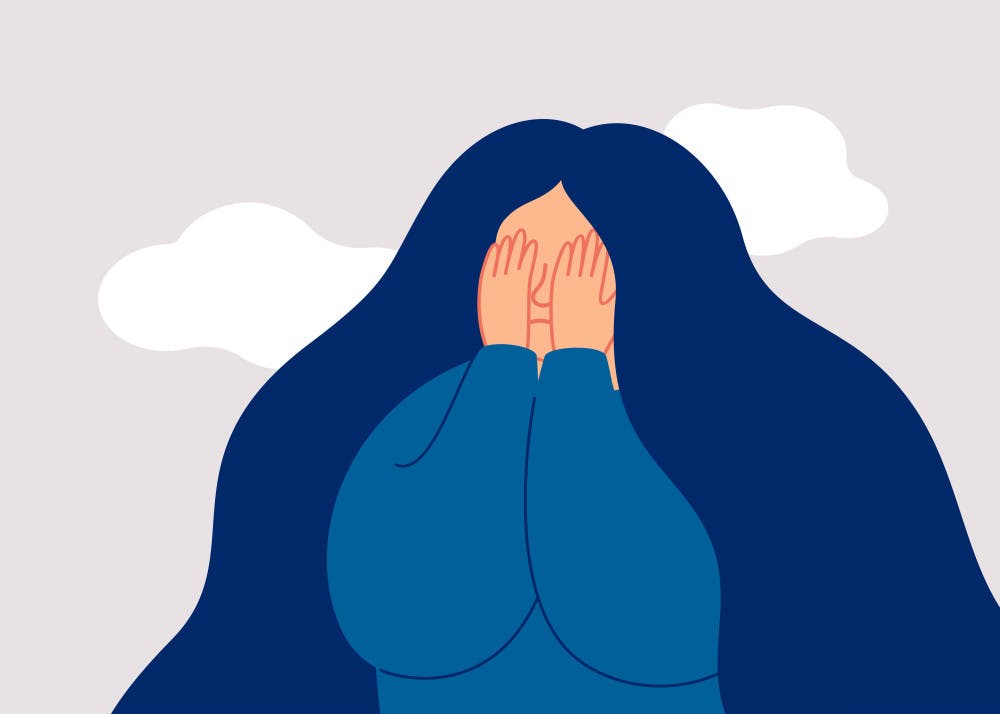
Omega 3 is a polyunsaturated fatty acid, and the reason cod liver oil used to be all the rage. And while it might not technically be a vitamin, for anxiety it can be very useful.
Omega 3 comes in several forms, but the most important are DHA and EPA. DHA in particular may play a role in protecting your mental health, and getting enough has been linked with a reduced risk of depression. In fact, one study found that taking a daily supplement could reduce the likelihood of developing symptoms by up to 30%[17].
One reason for this might be that DHA is vital for the production of serotonin, a hormone that helps us to regulate our mood naturally. Healthy production and regulation of serotonin can also reduce levels of anxiety and stress[18].
However, a lot of people don’t consume any oily fish at all, and the proportion reaching the recommended omega 3 intake might be as low as 16%[19]. For everyone else, supplements to help with anxiety might be worth looking into.
NRV for omega 3
There isn’t a specific NRV for omega 3. However, the recommendation is the equivalent of two servings of oily fish a week, which comes to around 375mg a day.
Top food sources for omega 3
Oily fish
Seaweed
6. Vitamin A for anxiety
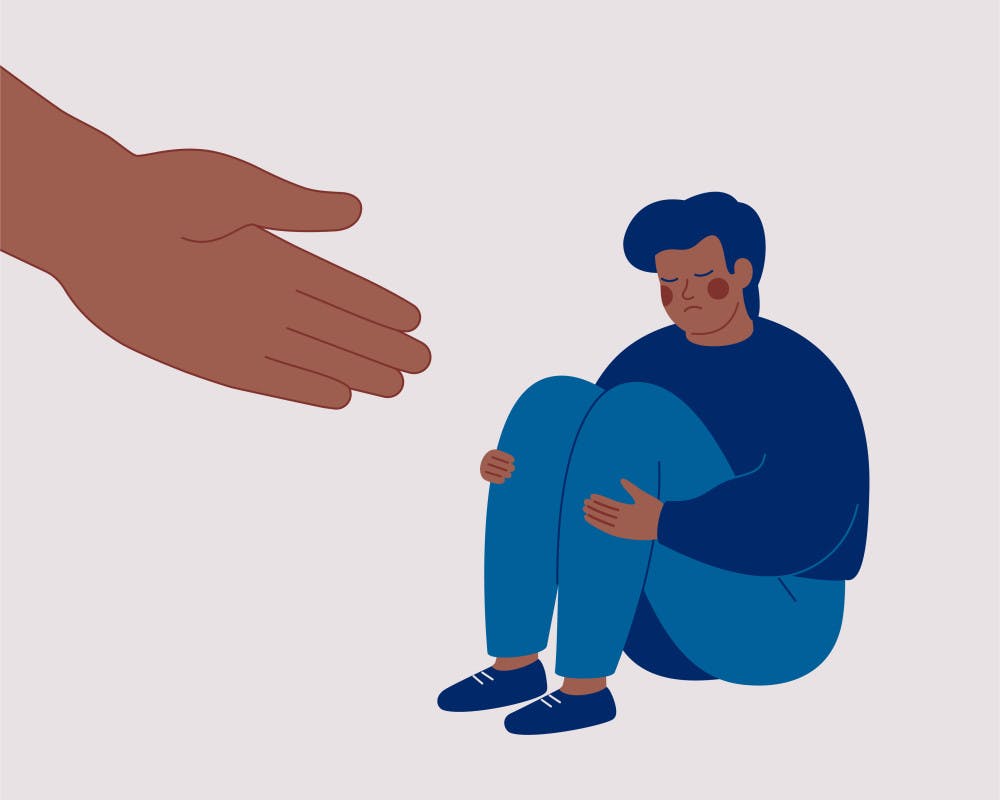
Vitamin A is an antioxidant and an essential nutrient that helps support the nervous system and promote normal muscle function and relaxation. The nervous system in turn helps to soothe anxiety and stress in the body and brain, reducing the chances of a panic attack, meaning that it’s an important vitamin for anxiety.
Vitamin A has also been seen in scientific studies to reduce the risk of anxiety in perimenopausal women, with an “inversely associated” relationship[20]. Another study also suggested that vitamin A, along with other carotenoids, may help lower the risk of depressive symptoms.
However, if you take vitamin A for anxiety, be careful not to take more than the NRV. As a fat-soluble vitamin, it can build up in your body and potentially cause health issues later on.
NRV for vitamin A
Adult men: 700µg
Adult women: 600µg
Top food sources for vitamin A
Sweet potatoes
Spinach
Carrots
Avocado
Eggs
7. Selenium for anxiety
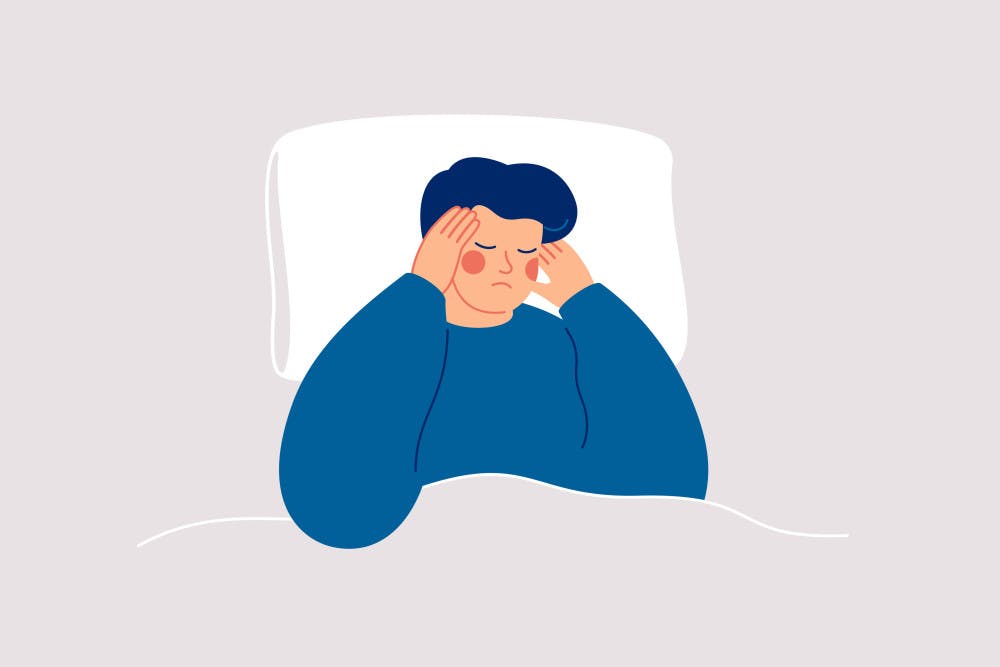
Selenium is one of the more overlooked minerals and vitamins for anxiety and panic attacks, but it’s an essential nutrient that can play a role in helping with anxiety.
Selenium’s powerful antioxidant properties can help to prevent cell damage and oxidative stress caused by free radicals. Reducing oxidative stress can protect against cognitive decline and mood disorders such as anxiety and depression
Scientific studies have linked low levels of selenium to higher frequencies of anxiety, depression and tiredness, while following supplementation helped reduce all three[21].
NRV for selenium
Adult men: 75µg
Adult women: 60µg
Top food sources for selenium
Brazil nuts
Tuna
Sardines
Lentils
Cottage cheese
Frequently asked questions about vitamins for stress and anxiety
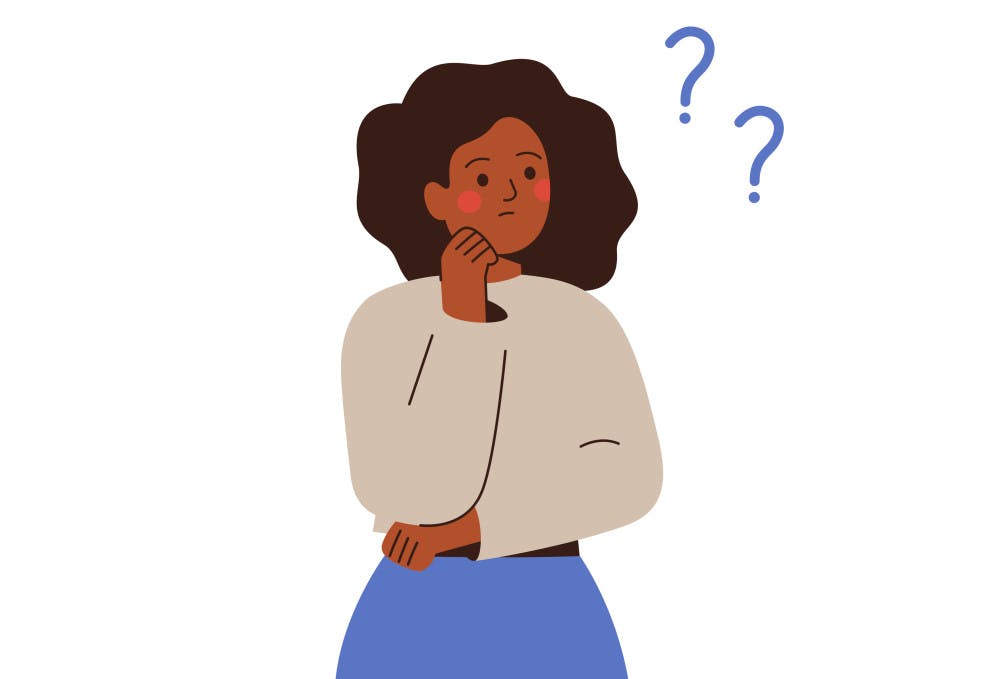
Which vitamins are good for anxiety?
There’s little debate over whether vitamins can help with anxiety, but not all nutrients have the same effects. Some of the best natural vitamins for anxiety include:
Vitamin A
B vitamins (including vitamins B6, B9, and B12)
Vitamin C
Vitamin D
Magnesium
Selenium
Omega 3 DHA and EPA
What is the best vitamin for anxiety and stress?
There is no single best vitamin for stress and anxiety. Like all aspects of brain health, a broad range of high-quality nutrients is the key to ensuring you’re doing everything you can to reduce levels of stress and anxiety, as well as lower the likelihood of panic attacks.
Do I need a supplement to help with anxiety?
While a balanced diet is usually the best way to get the vitamins for anxiety that you need, it can be difficult to stay on top of the variety of foods that we need. For many people, a clean high-quality supplement to help with anxiety is the simplest option.
What deficiency causes anxiety?
Studies have shown that certain nutrient deficiencies can correlate with higher levels of stress, anxiety and depression. While there is still discussion around whether these deficiencies cause anxiety, the evidence suggests that they can play a role. Some of the most prominent nutrient deficiencies in this area include vitamin B12 deficiency, selenium deficiency, and omega 3 deficiency.
What is the difference between anxiety and stress?
Because the symptoms of stress and anxiety are so similar, many people use the terms interchangeably. It is useful to understand the difference as many vitamins help both but the definition is different. While stress is a response to a short-term trigger (such as a demanding email from your boss, your toddler’s morning tantrum, etc), anxiety is a persistent feeling that never goes away.
Should I take vitamins for anxiety?
It’s important that we get the right vitamins for anxiety—more and more people are reporting suffering from it across the world (a trend that has accelerated in the past few years). Look out for a high-quality supplement that includes all the vitamins we've gone over in this article.